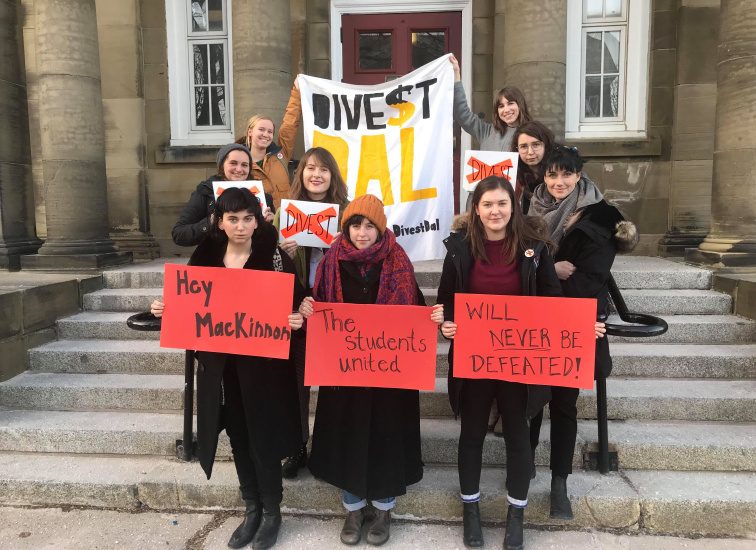Members of Divest Dal attend Dalhousie Board of Governors meeting in support of step toward fossil fuel divestment.

February 13, 2019 (K’jipuktuk/Halifax) – At Tuesday’s Dalhousie Board of Governors meeting the Dalhousie Board committed to signing onto the United Nations’ Principles of Responsible Investing and to increase investments in renewable energy companies.
Kathleen Olds, a student Board member and Divest Dal organizer explains the impact of yesterday’s decision: “This is an important step forward for Dalhousie to commit to the widespread systemic change that must occur for us to address the climate crisis. I am grateful for all the students and administrators who stand together in this fight – as well as the people across the world standing up for climate justice.”
Divest Dal has been advocating for the removal of fossil fuel investments from the Dalhousie University endowment fund for the past 6 years. In 2014, the Board of Governors voted against divestment but, following a 9-day campout on the Dalhousie quad, the Board agreed to investigate options for fossil free investing. Yesterday’s decision was the result of a year-long process of assessing investment options.
Divest Dal member Laura Cutmore states: “Student organizing got Dal to revisit their 2014 decision not to divest. That’s huge, and we’re celebrating that as a step toward full divestment. But we’re going to keep fighting because ultimately this is not good enough – we need more than a commitment to responsible investing in vague terms. We need a divestment commitment to guarantee fossil free investing at Dal. The recent UN report on climate change shows that we now have 11 years to avoid climate catastrophe. At this point it is unconscionable for Dal to still be invested in the companies that have contributed most to climate change.”
Olds adds, “Climate change is not a theory or a future possibility, it is a lived reality for millions around the world right now. Companies that refuse to acknowledge the risks associated with climate change and do not take action to mitigate them pose an unacceptable risk for returns – more importantly, their actions or inactions are fundamentally unethical and place disproportionate burden on those who have done the least to cause this problem.”
Follow Divest Dal on Facebook



